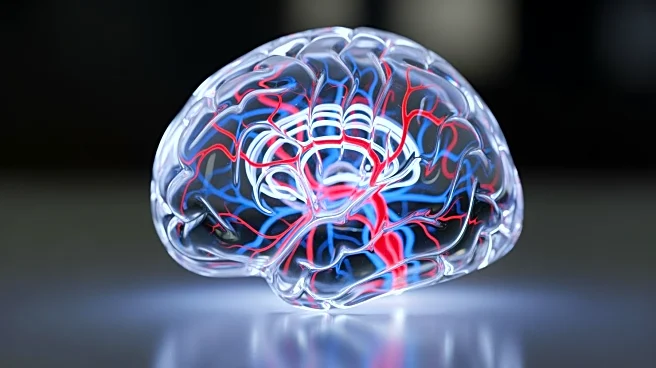What's Happening?
A study on pediatric patients with acute lymphoblastic leukemia (ALL) reveals significant cerebrovascular complications during treatment, affecting 12.5% of patients. These complications often require modifications to chemotherapy protocols, impacting
patient outcomes. The study identifies methotrexate-induced leukoencephalopathy and cerebral thrombosis as common issues, necessitating alternative treatments like intrathecal cytarabine. The findings emphasize the need for adaptive strategies to balance toxicity management with treatment efficacy, as cerebrovascular complications can disrupt curative therapy.
Why It's Important?
The study highlights the critical need for improved management of cerebrovascular complications in pediatric leukemia patients. These complications can significantly affect therapy continuation and overall prognosis, underscoring the importance of multidisciplinary approaches to optimize patient care. The research suggests potential therapeutic adaptations, such as replacing methotrexate with cytarabine, to mitigate toxicity while preserving efficacy. The findings also call for enhanced neurological monitoring and personalized treatment adjustments to minimize neurotoxicity, ultimately aiming to improve survival rates and quality of life for affected patients.
















